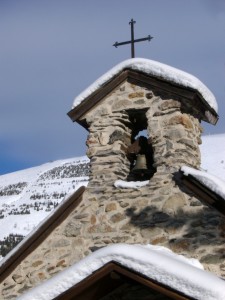Writing from Paris, Pascal-Emmanuel Gobry reports:
It was only recently that I was struck by the fact that, imperceptibly, the majority of my college and grad school friends who were Christmas-and-Easter-Catholics when we met now report going to Church every Sunday and praying regularly. On social media, they used to post about parties; now they’re equally likely to post prayers for persecuted Middle East Christians or calls to help the homeless over the holidays.
My friends live all over town; some of them are young singles who move around a lot; all of them report looking for those mythical “empty churches” we hear so much about — and failing to find them. In fact, it’s closer to the other way around: If you don’t show up early, you might have to sit on the floor — and people are happy to do it…
Nowadays, the perceptive and troublemaking French writer Michel Houellebecq is making noises with his book Submission, which envisions France turning into an Islamic theocracy in the near future — not chiefly because of immigration from Muslim countries, but because of the conversion of the native-born population. The agnostic Houellebecq’s book is Christ-haunted, or perhaps more accurately, Christianity-haunted. The book’s protagonist, an allegory of France, and, perhaps, the author, is fascinated by the figure of Joris-Karl Huysmans, a 19th century French author who converted from a life of atheistic hedonism to devout Catholicism. The protagonist is exhausted by the spiritually dead consumerist secularism of his culture — so exhausted that even despite his best efforts, he finds himself unable to believe in the faith of his forefathers, and only turns to Islam, as it were, as the last available option.
The tragic Charlie Hebdo attack has thrown into relief what seems to some, like Michel Houellebecq, as the battle between irreligiosity and Islam for the future of France. Nobody seems to envision that France’s future instead just might be some of that old-time religion.









